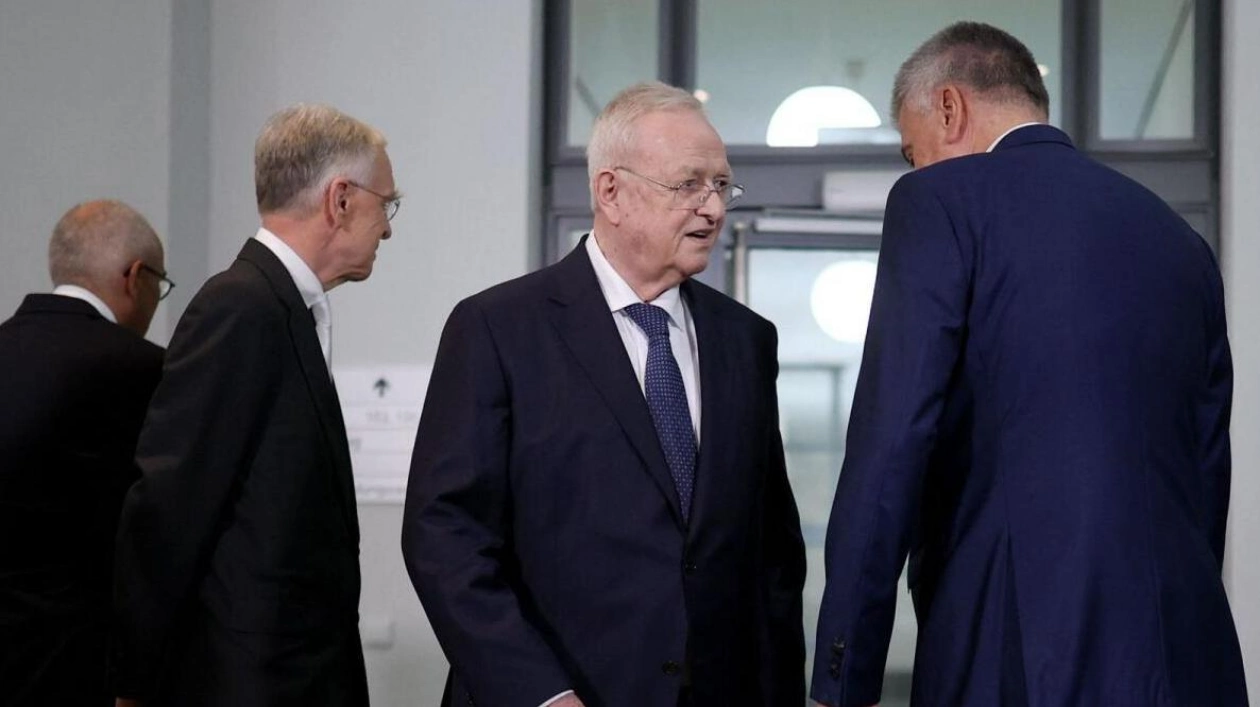Former Volkswagen CEO Martin Winterkorn described the charges against him as 'implausible' during his testimony at the 'dieselgate' scandal trial on Wednesday. 'I find it implausible to bring a criminal charge against me as the prosecutors are attempting with their charges,' he stated in the German city of Braunschweig, near VW's historical base in Wolfsburg. The 77-year-old's trial commenced on Tuesday, nearly a decade after Volkswagen confessed to installing software that manipulated emissions levels in millions of diesel vehicles globally, triggering one of Germany's most significant post-war industrial scandals. Previous legal efforts against him were unsuccessful due to his health issues. However, he now faces accusations including fraud and market manipulation related to the so-called defeat devices, which made cars seem less polluting in tests than in real driving conditions, and could face up to 10 years in prison if found guilty. Winterkorn refutes all allegations.
In a detailed statement, he outlined his leadership of a vast corporate entity, his extensive responsibilities, and his distance from specific decision-making processes. The former executive acknowledged that as the CEO during the scandal, he would always be 'closely linked' to 'dieselgate'. However, he emphasized, 'I was not involved in the decisions regarding the development and use of this irregular software function in the new VW diesel engines.' Winterkorn led Volkswagen, which includes brands like Porsche, Audi, Seat, and Skoda, from 2007 until 2015, resigning shortly after the scandal broke. He passionately defended his tenure, noting a five-fold increase in profits and a near doubling of the workforce to over 600,000 during his leadership.
'I have devoted almost my entire professional life to the Volkswagen Group, striving for decades to produce good cars and sell them at reasonable prices,' he declared. He also asserted that while the reputation of diesel cars has suffered, that of VW 'has not been permanently harmed'. The prosecution's main argument focuses on proving that Winterkorn knew about the defeat devices earlier than he claims. He maintains these allegations are 'not correct', stating, 'I am not an engine developer, I am not an emissions control specialist, and I am not a software expert.'
The primary charge of conspiracy to commit fraud involves approximately nine million vehicles sold in Europe and the United States, with potential financial losses for buyers reaching hundreds of millions of euros. However, Winterkorn is not accused of involvement throughout the entire period, from 2006 to 2015. He also faces accusations of providing false testimony to a German parliamentary committee in 2017 during its investigation into the scandal. Additionally, he is charged with market manipulation for allegedly not disclosing information about the emissions-rigging software 'in good time', violating German stock market regulations.
Concerns about Winterkorn's health remain, with reports indicating he underwent surgery in mid-June. The trial is scheduled for 89 hearings until September 2025. He agreed in 2021 to pay Volkswagen 11 million euros as part of a settlement. The highest-ranking former executive convicted in the scandal so far is ex-Audi CEO Rupert Stadler, who received a suspended sentence and fine last year after admitting to fraud. The fraud has already cost VW over 30 billion euros in fines, legal costs, and compensation to car owners, primarily in the United States.






